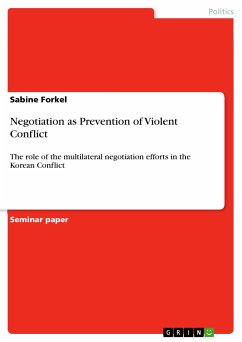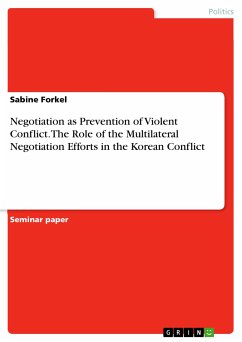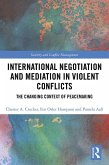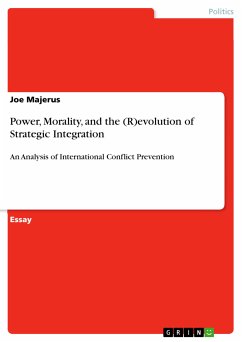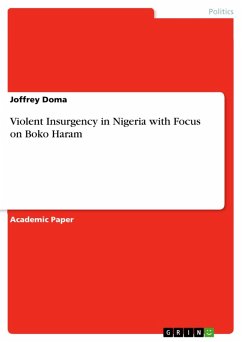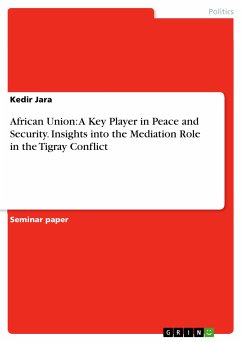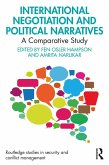Seminar paper from the year 2014 in the subject Politics - Topic: Peace and Conflict, Security, grade: 2,3, Otto-von-Guericke-University Magdeburg, language: English, abstract: At the end of the Cold War, North Korea changed its military interventions into an approach to negotiations in order to use diplomatic talks to advance its political and propaganda aims. Since then there has been a long period of mistrust and provocation between the involved countries, notably North and South Korea, the USA, China and Japan. After the nuclear weapons test in North Korea in 2006 it has become even more important to rethink the security policy concept of the whole region. The most important way to prevent an outbreak of the "cold war" to a "hot war" is to keep the negotiation process going on. To find out the main interests of the parties and negotiate between them, China initiated the so-called Six-party talks, which have started in 2003 and since then had to cope with several difficulties. They aim to find a peaceful resolution to the security concerns of the participating states. The most important issue is the North Korean nuclear weapons program that is provoking the stability of the whole region. For that reason are the six-party talks "a matter of extreme importance" to develop a world nuclear security (Lee 2004: 120). After North Korea made public that it has built a nuclear weapon one of the main risks is that South Korea, Japan and maybe also Taiwan could also build one which would raise the risk for a military escalation of the conflict. Another dangerous threat is North Koreas export of nuclear weapons into countries that are part of America's so-called "axis of evil". In December 1991 North Korea agreed to sign two documents with South Korea. The first was an agreement on reconciliation, non-aggression, exchanges and cooperation; the other was the Joint Declaration on the Denuclearization of the Korean Peninsula. Thereafter the two Koreas entered a difficult negotiation to implement a nuclear inspection regime, which broke down without agreement. [...]
Dieser Download kann aus rechtlichen Gründen nur mit Rechnungsadresse in A, B, BG, CY, CZ, D, DK, EW, E, FIN, F, GR, HR, H, IRL, I, LT, L, LR, M, NL, PL, P, R, S, SLO, SK ausgeliefert werden.

